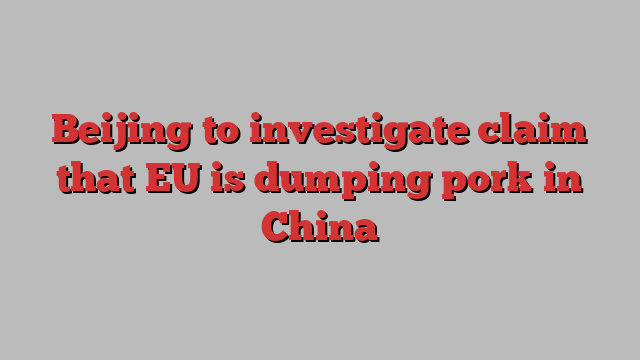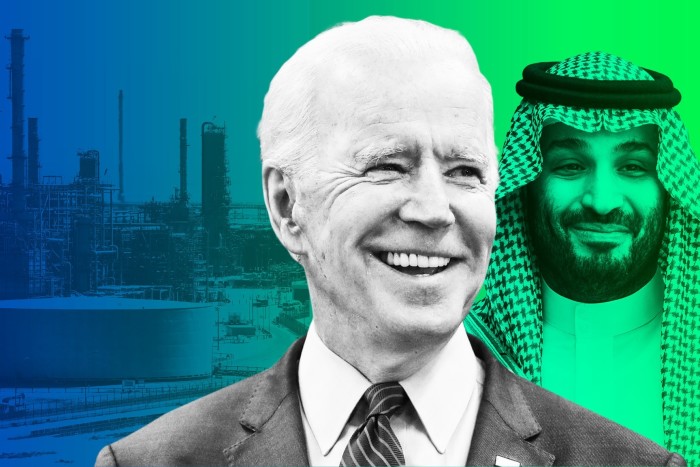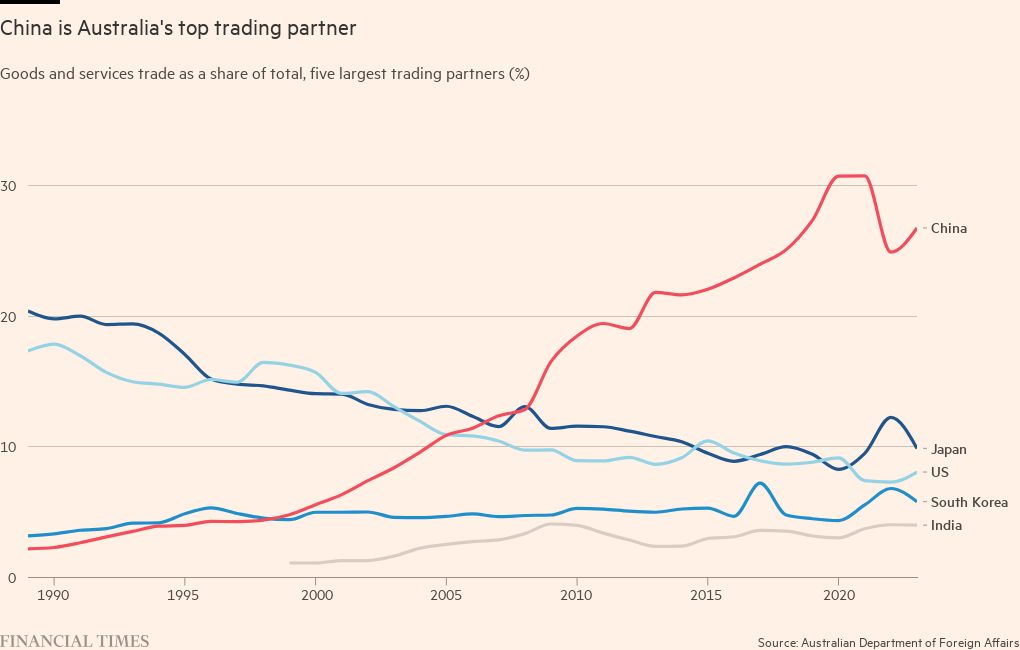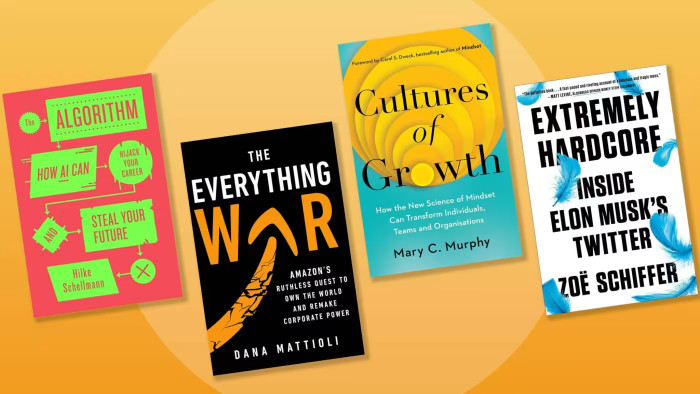
This article is an onsite version of our FirstFT newsletter. Subscribers can sign up to our Asia, Europe/Africa or Americas edition to get the newsletter delivered every weekday morning. Explore all of our newsletters here
Good morning. In today’s newsletter we’re covering:
-
A dramatic shift in US-Saudi relations
-
Record Australia-China trade figures
-
The best business books of the year
But we start with Beijing’s anti-dumping investigation into EU pork imports. The probe, announced yesterday, escalates trade tensions less than a week after Brussels said it would impose tariffs on electric vehicle shipments from China.
China’s ministry of commerce said the investigation would focus on EU pork imports in 2023 and last up to a year, though it could be extended by six months.
“In recent years, the European Union has been dumping large quantities of low-priced pork and pig by-products into China, impacting . . . China’s pork and pig by-products industry, as well as the related farming sector and farmers,” the China Animal Agriculture Association said in its application to the ministry requesting the investigation.
By launching the anti-dumping probe, Beijing hopes to pressure individual European governments to force the European Commission to scrap the EV tariffs before they are confirmed by July 4.
“It’s a politically designed retaliation,” said Fredrik Erixon, director of the Brussels-based European Centre for International Political Economy. Read the full story, including details of which EU nations can expect to be hardest hit.
Here’s what else I’m following today:
-
Putin visits North Korea: Russian President Vladimir Putin will travel to North Korea today for a two-day trip, the Kremlin has said.
-
Australia interest rate decision:
-
Toyota results: The Japanese carmaker will release its full-year results at its annual general meeting
-
Darktrace acquisition vote: Shareholders will vote on the proposed acquisition of the company by Thoma Bravo
Join Financial Times and Nikkei Asia journalists and an expert guest from the Asia Society at 4pm BST today for a free online webinar on the US-China geopolitical relationship: what is the way ahead?
Five more top stories
1. Israeli Prime Minister Benjamin Netanyahu has dissolved his war cabinet set up in the wake of Hamas’s October 7 attack following the resignation of two of its five members. Here is what’s expected to happen next.
2. Japan’s TDK has claimed a breakthrough in producing solid-state batteries. The Apple supplier predicts that its new material will create significant performance increases for devices by squeezing about 100 times more energy into the same space than the group’s current battery in mass production.
3. India is pushing ambitions to become a leading artificial intelligence hub as Big Tech groups such as Microsoft and Amazon prepare to spend billions on computing infrastructure in the country. Read what we know about their spending plans.
4. Exclusive: The Biden administration is ready to release more oil from its strategic stockpile to halt any jump in petrol prices this summer, President Joe Biden’s closest adviser on energy has told the Financial Times. “We will do everything we can to make sure that the market is supplied well enough to ensure as low price as possible for American consumers,” said Amos Hochstein. Read the full interview.
-
More energy news: Europe’s gas imports from Russia overtook supplies from the US for the first time in almost two years last month, despite the region’s efforts to wean itself off Russian fossil fuels.
5. Ukraine urged international bondholders to accept deep cuts on the value of more than $20bn in debt in order to help finance the nation’s war effort. Volodymyr Zelenskyy’s government is facing a tight deadline to secure the debt restructuring, which it needs in order to continue receiving a bailout from the IMF and to restore flows of private funding for reconstruction. Read more on the differences between international bondholders and the government in Kyiv.
The Big Read

At the beginning of his presidency, Joe Biden was threatening to make Saudi Arabia a pariah state. But in recent months, relations between the countries have blossomed to the point where officials describe Riyadh as one of Washington’s most important global partners. The FT’s Felicia Schwartz, US foreign affairs and defence correspondent, and Andrew England, Middle East editor, explain what’s behind the dramatic shift.
We’re also reading . . .
-
Chinese EVs: Economist Zhu Min, a member of China’s powerful five-year plan committee, challenges the idea of “overcapacity” in his nation’s EV market.
-
Polls and markets: Neither strong majorities nor political labels matter much to economies and financial markets, writes Ruchir Sharma, just new faces.
-
Making sense of Gen Z: Advisers from social media influencers to big consultants offer guidance on how to recruit and retain 20-somethings.
Chart of the day
Australia’s trade with China has jumped in the past year to record levels, reaching A$219bn (US$145bn) in 2023, even as Canberra has embraced closer security ties with Washington. The importance of the Australia-China trade ties were on display as Chinese premier Li Qiang arrived in Australia, where he also plans to visit mining and winemaking regions.

Take a break from the news

Senior business writer Andrew Hill selects his best business books of the year, including a title that rails against change for change’s sake, an optimistic account of the potential for generative AI and a guide to creating “good friction” within business to ensure better outcomes.
Additional contributions from Gordon Smith and Tee Zhuo.
Recommended newsletters for you
One Must-Read — Remarkable journalism you won’t want to miss. Sign up here
Sort Your Financial Life Out — Learn how to make smarter money decisions and supercharge your personal finances with Claer Barrett. Sign up here